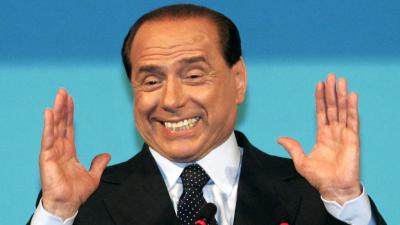Hung Parliament and Berlusconi's return, predicts Professor

ROME - Berlusconi and right-wing parties are on the rise, as Italy heads for a political stalemate in next year’s general election. Evidence for this can be found in the Sicilian election results of this weekend. Professor Giovanni Orsina of the Luiss-Guido Carli University in Rome commented on this outcome Monday at a press conference at the Foreign Associated Press.
The Sicilian elections saw the Musumeci, the candidate favoured by former Prime Minister Silvio Berlusconi, leading by only a few percent in the projected election results, with the 5 Star Movement’s candidate Cancellieri coming in at a close second. The Democratic Party (PD) has trailed behind, with their result being seen by some as symbolic of their declining influence.
In Professor Osina’s view, “the major loser of the election is both the Democratic Party, and the leader of the PD, Matteo Renzi, personally. Renzi is no longer very relevant to the centre-left, which leaves issues for this entire part of the political system.”
“Sicily is traditionally right wing, so it is not surprising that right-wing groups did well in the election. However, we can also see that the 5 Star Movement is not disappearing. We can expect them to still be very present at the national election. It is most likely that there will be a hung parliament, with a centre-right majority. With three groups [the Democratic Party, centre-right parties, and the 5 Star Movement] all having the same amount of influence, it will be hard to create a stable government.”
When speaking directly to the Insider, Professor Orsina stressed the interconnectivity of Renzi’s fall and Berlusconi’s rise. “The moment that Renzi lost the Constitutional referendum in 2016, Berlusconi was back. Renzi was perceived as an embodiment of the establishment. For a year and a half as Prime Minister, the Italian people forgave him for being cock-sure and arrogant. But now, when it has become clear that he is not going to change anything about the way Italy is run, he has become a scapegoat. Renzi is not fresh. And when people no longer believed Renzi could change Italy, that left a space for Berlusconi.”
The Professor also explained that the rise of the 5 Star Movement could be seen as an anti-political movement, the same way that Berlusconi’s party Forza Italia was seen in 1992/1993 after judicial scandals rocked Italy’s political scene. For decades, Italians have held anti-political sentiments, and Professor Orsina described 5 Star Movement’s “skilfull ability to direct this hatred of politics, unpolluted, into a movement that is neither associated with the left nor the right and could gain power.”
The 5 Star Movement and the centre-right parties will be jockeying for position ahead of the general election, and the results of the weekend prove that Italy is split in its political allegiances. One criterion that may judge the ability of the 5 Star Movement to run Italy effectively, the Professor described, was in its handling of Turin. “While Rome is impossible to manage effectively, and anyone would mismanage it, Turin was relatively well governed before the 5 Star. That is the main failure of the party, and that is what the opinion polls are saying might affect their chances in the general election.”
Viewing the Sicilian elections as a microcosm for the national elections next year, it appears that Italy will have a hung Parliament with three diverse groups. The right-wing success in Sicily may also signal the return of Berlusconi, who at 81 years-old, may have ousted former Prime Minister Renzi from his power.


